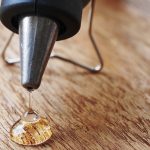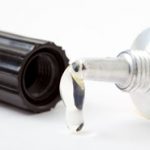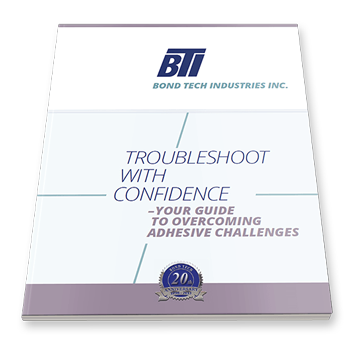Adhesives are used virtually everywhere to perform a variety of tasks, and the strength of the glue needed depends on the job.
Whether it be packaging products, adhering rubber to rubber, assembling furniture, or using adhesives in an industrial environment, having a reliable and high-quality adhesive can make all the difference.
Do you know which adhesive is right for the job?
The best way to determine which adhesive is right for the task at hand is to first consider what the adhesive will be used for.
At Bond Tech, we carry adhesive materials to suit all your needs. From bookbinding to packaging to product assembly, we carry a wide range of adhesives.
But do you know which one you need? Here are the differences between the top two industrial adhesives:
What is a hot melt adhesive?

The most popular type of hot melt adhesives is ethylene-vinyl acetate (EVA).
- Ethylene-Vinyl Acetate (EVA) works best with paper materials used for packaging and assembly because they set quickly and provide strong bonds. Great for general everyday gluing. Most commonly used in case and carton sealing applications due to its speed of set.
Hot melt adhesives are used in a wide range of industries, but are most often used in the paper and packaging, woodworking, and automotive industries because they work best for operations such as carton sealing and assembly.
What is a water-based adhesive?

Two of the more popular types of water-based adhesives are EVA/PVA and Vegetable-based (Dextrin).
- Dextrin is commonly used for paper applications and contains a starch base, which allows the adhesive to have a more flexible, solid bond.
- EVA/PVA polymers are water-based emulsions. These are the ‘work horses’ of water based adhesives and are commonly used to bind fabrics, woods, papers, foams and some plastics.
Similar to hot melt adhesives, water-based glues are used for many similar applications. The decision to use one or the other usually comes down to bond requirements, equipment type and required production speeds.
What makes hot melt and water-based adhesives different?
Hot Melt |
Water-Based |
| Hot melt adhesives have a quick set speed and are applicable in a wide range of temperatures and industries. They rely on cooling to set vs evaporation. |
Water-based adhesives offer an advantage in that they offer good resistance to heat, chemical and water influences. They can also be more economical than a hot melt. |
Avoid a sticky situation
As with any adhesive, you may encounter problems; the glue may not be adhering, or your products are not reacting well to the adhesive, or you’ve damaged something in the process. It can happen to the best of us.
Fortunately, we offer this FREE guide on Overcoming Adhesive Challenges to help you overcome the most nerve-wracking of problems.
Which adhesive is right for you?
It’s important to do some research to figure out which type of hot melt and water-based adhesive would be most suitable for your application.
It’s also important to remember that while a particular adhesive may work in one situation, it may not work in the next. When it comes to adhesives, product success depends on the specific situation.
Keep in mind that while hot melt adhesives are more commonly used, water-based adhesives are higher quality and more appropriate for projects based on different temperatures.
When it comes to the right adhesive to choose – it all depends. The best thing to do is to speak with a professional. Bond Tech’s team of adhesive experts is here to offer you advice.
Let us help you.
Learning the differences between adhesives is tricky, let us help. Our expert staff is always happy to speak with you about any questions or concerns you may have.
Whether you’d like to request a product quote or schedule an adhesive audit, we’ll get back to you with the answers and insight you’re looking for.





